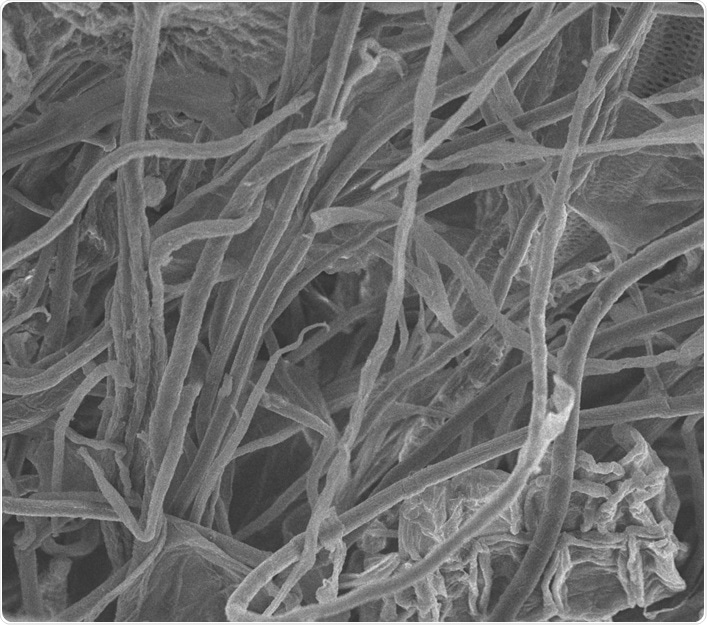
Nanocellulose fibers can reduce fat absorption, research finds
A novel method of reducing the absorption of fat from the gut has recently been granted a US provisional patent. Researchers at the Nanyang Technological University and Harvard University have demonstrated that the addition of nanocellulose fibres to the food of animals significantly reduces the amount of ingested fat that reaches the bloodstream.

© TinyPhoto/Shutterstock.com
The prevalence of obesity has been increasing at an alarming rate in recent years, making it a global health problem. It has been predicted that if the increase in obesity continues at the current rate, about a fifth of the adult population worldwide will be obese by 2025.
The strong association between increasing body mass index and the risk of serious chronic disorders, such as diabetes, cardiovascular diseases, musculoskeletal disorders and some cancers, has made reducing obesity a medical priority. Although there has been extensive research into treatments to help obese people lose weight, the most effective option is still bariatric surgery that can have serious complications and long-lasting side effects.
Recent research indicates that nanocellulose could be a valuable aid in the global battle against obesity. Nanocellulose is a relatively new material obtained from plant matter that comprises cellulose fibrils with a diameter 100 times smaller than that of a human hair. It has been shown that nanocellulose binds and traps ingested triglycerides preventing them from being broken down into fatty acids, which are small enough to be absorbed from the small intestine into the bloodstream. Consequently, less fat is absorbed and so the amount excess fat available to be laid down in fat stores is reduced.
Associate Prof Ng Kee Woei, a biomedical engineer and materials scientist, commented "We’ve known for a long time that fibre in the diet has positive health benefits but what we have shown now, is that in animal experiments, fibres at the nanoscale are much more effective at reducing fat absorption than in its bulk form".
The addition of tiny balls of nanocellulose fibres to the food of experimental animals reduced the amount of fat they absorbed from their diet by up to half. Rats fed with heavy cream containing nanocellulose absorbed 36% less than rats who ate heavy cream alone. It is thought that increasing the proportion of nanocellulose added to food could increase the percentage reduction in fat absorption.
Associate Prof Joachim Loo, a scientist researching on nanomaterials, explained that cellulose is categorised by the US Food & Drug Administration as a 'Generally Regarded As Safe' material as it is found in all plants. Furthermore nanocellulose can be easily produced by grinding cellulose into an extremely fine powder. It is therefore feasible that nanocellulose could soon be available as a weight loss aid, although further studies to validate these findings are still needed.
Dr Terence Tan, Head of the Advanced Medicine Oncology Centre in Singapore, added “To date, there is sufficient evidence to show that the absence of excess body fat has a cancer‐preventive effect, and lowers the risk of developing thirteen different types of cancers including common cancers such as colorectal and post‐menopausal breast cancers. Avoidance of weight gain in the form of excess body fat is therefore an important strategy in our fight against cancer".
Sources:
- DeLoid GM, et al. Reducing Intestinal Digestion and Absorption of Fat Using a Nature‐Derived Biopolymer: Interference of Triglyceride Hydrolysis by Nanocellulose. ACS Nano 2018 12 (7), 6469‐6479 DOI: 10.1021/acsnano.8b03074
- http://media.ntu.edu.sg/NewsReleases/Pages/newsdetail.aspx?news=620e5f00-8a03-4b00-b699-7a460690b50e



































No hay comentarios:
Publicar un comentario